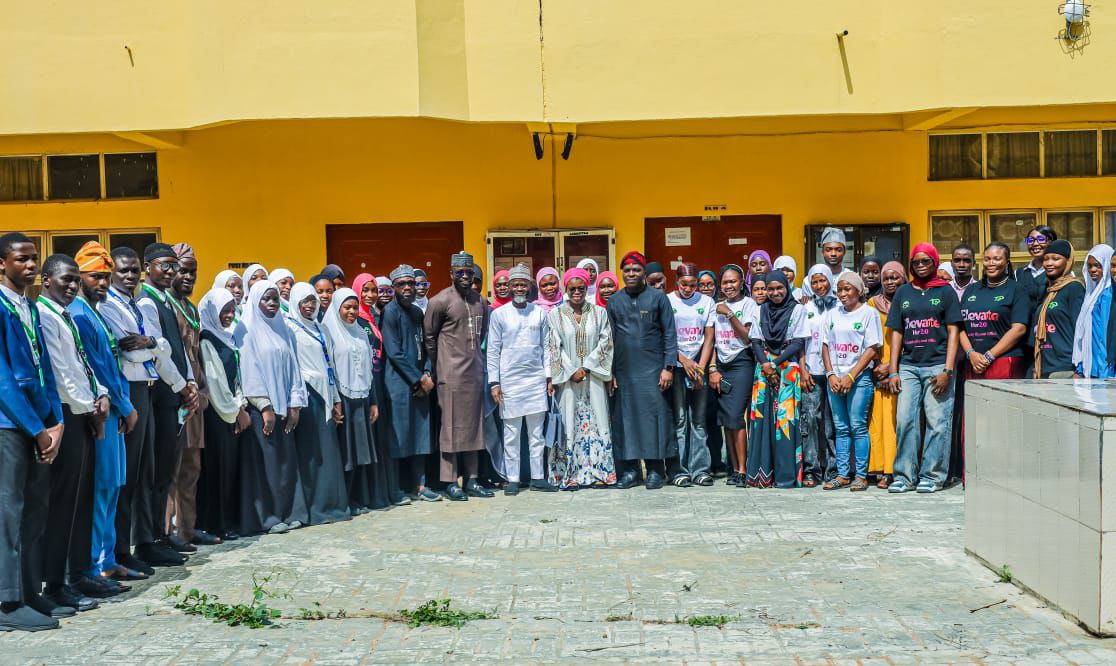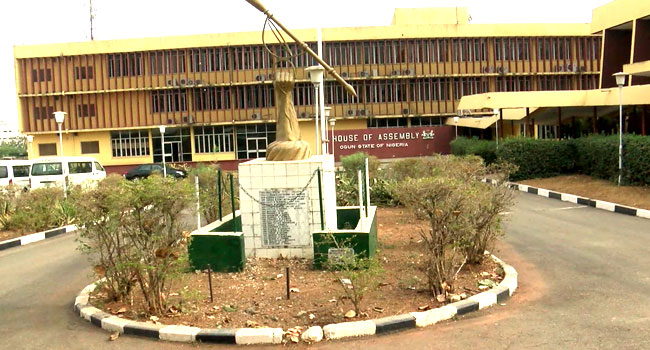With certificates in hand and fresh perspectives etched in their minds, 18 young women from across Kwara State wrapped up ElevateHer 2.0 this month, a programme that blended rigourous virtual training with an intensive three-day workshop to forge ethical, resilient female leaders.
The programme organised by the Eagles Foundation for Humanity and coordinated by Titilope Anifowoshe, the advocate known as the Legal Eagle, the initiative drew participants from eight institutions: the University of Ilorin, Kwara State University, Kwara Polytechnic, Offa Polytechnic, Al-Hikmah University, Kwara State College of Health Technology, Kwara State College of Education, and Thomas Adewumi University. Under the theme “Leading Beyond Office,” the effort aimed to equip these student leaders not just for campus roles but for lifelong impact.
The programme, which built on the inaugural edition in August 2024, kicked off its virtual phase in July, engaging fellows in sessions that dissected key facets of leadership.
Special Adviser to the Minister for Solid Minerals Development, Kemi Asekun, led discussions on women’s political participation, urging participants to see politics as a tool for equity rather than exclusion. Her insights prompted many to reconsider barriers to entry, inspiring a shift from passive observation to active strategizing in civic spaces. Princess Elexa Vanjahkollie of Freedom TV Liberia tackled media branding, teaching fellows how to craft authentic narratives in a digital age. This reshaped their views on self-presentation, with several noting how it empowered them to amplify their voices without compromising integrity.
Chief Executive of Jarus Homes, Alh. Suraj Oyewale, handled financial management, breaking down budgeting and resource allocation in leadership contexts. His practical approach altered perceptions of fiscal responsibility, helping participants view money not as a hurdle but as a lever for sustainable advocacy.
ECOWAS Resident Representative in Liberia, Josephine A. Nkrumah, focused on leadership ethics, emphasising accountability and moral decision-making. Her sessions encouraged fellows to unlearn expedient shortcuts, fostering a collective commitment to principled governance that echoed through their reflections.
Throughout the virtual months, fellows honed these lessons via the EquiChat debate series, weekly assignments, and evaluations, ensuring concepts took root.
A participant later shared in an anonymous interview: “I wasn’t really interested at first, but Legal Eagle’s style of teaching, her continuous drilling that made me commit fully. She always ensures we incorporate what we learn into our daily lives. I’ve learned and unlearned so much, thanks to our amazing facilitators. Today, I’m a better leader than I was. I’m proud to say I’ve been elevated.”
The physical workshop, held from September 15 to 17 at the University of Ilorin, amplified this foundation with direct interactions. It began with a courtesy visit to the Kwara State House of Assembly, setting a tone of real-world application. Day one centered on persistence and authentic leadership, with Rukayat Shittu, a young lawmaker, sharing her journey in Nigeria’s political system.
Her stories of overcoming obstacles reshaped fellows’ understanding of resilience, turning abstract feminism into tangible action steps.
A Liberian youth leader and member of the President’s Special Youth Advisory Council, Alphia Faith Kemokai, discussed lobbying and youth influence, broadening horizons to see African leadership as interconnected and urgent. This duo’s input challenged isolationist views, instilling a sense of global solidarity.
Day two explored feminist values and ethical leadership in student unionism, alongside themes like votes, voices, and the costs of leading. A Kwara assembly member, Seun Oguniyi Adato, stressed dignity and ethics in advocacy, prompting participants to prioritise trust over power.
An activist, Fatima Dikko, advocated for inclusion and fairness, reshaping ideas of feminism from competition to collaboration. Danta Saryee from Liberia reinforced integrity in unionism, while AbdulRasheed Akogun of Fresh Insight Media and Dr. AbdulWasiu Tejidini of KWASSIP delved into the sacrifices and rewards of ethical politics.
These talks collectively transformed fellows’ outlooks, moving them from reactive agitation to proactive, value-driven engagement.
The final day, relocated to the Faculty of Law’s LR8 hall, addressed “Clicks, Clout and Conscience: Navigating Ethics in a Viral Age,” incorporating artificial intelligence and digital ethics.
Rafiu Ajakaye and others guided discussions on responsible influence, altering participants’ approaches to social media from mere visibility to conscientious impact. A fireside chat on Anifowoshe’s memoir tied personal narratives to broader lessons, helping fellows connect individual growth to communal change.
The event culminated in a certificate presentation by Speaker of the Kwara State House of Assembly, Salihu Danladi, who lauded Anifowoshe and the foundation for their investment in the region’s future.
“This is more than an event,” he said. “It’s an investment in voices that will echo for generations.”
Anifowoshe, reflecting on the close, emphasised the programme’s broader vision: “ElevateHer goes beyond training. It’s about improving, amplifying, and promoting the capacity of every girl child across the world.”
As these women return to their communities, the programme’s influence is evident; not in titles, but in the evolved mindsets ready to redefine leadership in Africa.






